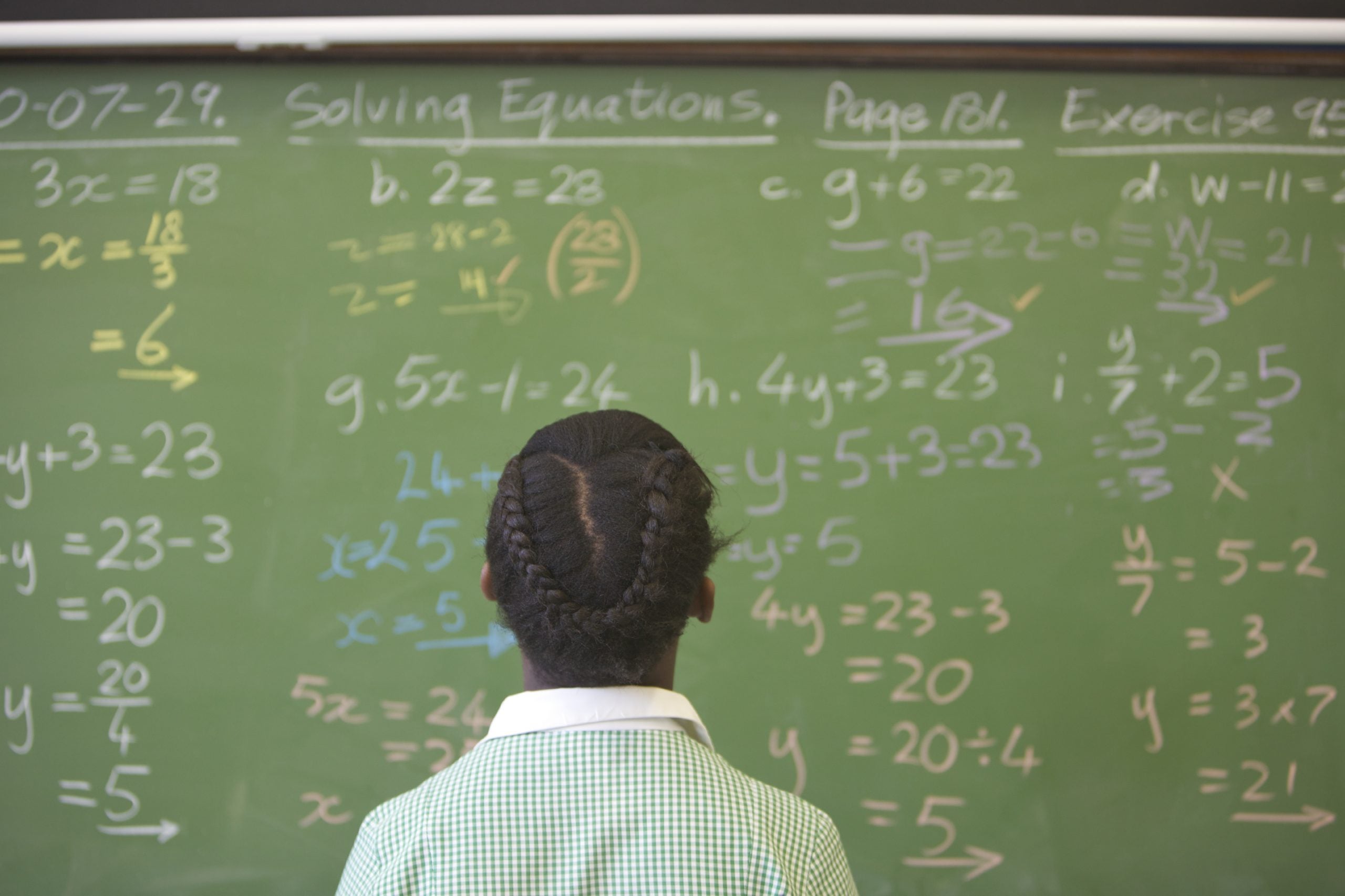
If it had worked out, Jeanine Jackson’s daughter would have graduated from Roland Park Country School in 2019. As a 1988 graduate of the prestigious all-girls school, nestled in a scenic neighborhood in Baltimore, Jackson had entered the school in fifth grade as one of a handful of Black students and had returned to teach just after college. By 2005, when it was time to enroll her own daughter, Kathryn, in kindergarten, she was no stranger to the school’s racial issues, but felt prepared for the challenge.
“But my beautiful Black child woke up one day and no longer wanted to be Black. She told my father that she wanted to be White, because the White kids get treated better,” Jackson revealed. “She was there for one year. It took years to rebuild her self-esteem.”
Jackson said her daughter previously had a “dynamic personality,” but at Roland Park, which educates students from preschool through twelfth grade, it became clear that negative assumptions were being made about her child. She recalled a teacher accusing her 5-year-old of refusing to say the Pledge of Allegiance.
“I always felt like they were trying to talk me into doing less than what I was capable of.”
—Karel Valentine, a 1995 graduate of Roland Park Country School
“She sat there with a smirk on her face,” the teacher claimed, Jackson recalled. “I said, ‘Did you teach her the Pledge of Allegiance?’ She said, ‘No, every child should come into the school already knowing the Pledge of Allegiance. Parents teach the Pledge of Allegiance at home.’ ”
These racial microaggressions are not unique, according to Black alumnae, who virtually gathered in June. A unifying factor—racial trauma—emerged among the Black former students who graduated from the private school in the early 1990s to 2018. Eerily their experiences with teachers, fellow students and the school’s administration sounded the same.
Karel Valentine believes both her race and economic status created an uphill battle to prove to one member of the faculty that she was academically capable. She recalled meeting with her White college counselor, only to be told that her college selections were out of reach and to apply to state schools and community colleges instead. “I ended up ignoring him,” she recalled.
That brave decision allowed Valentine, who graduated in 1995, to be admitted into nearly every engineering program she applied to, including Cornell, Columbia, Johns Hopkins and Carnegie Mellon. Still, the blow to her self-esteem took years to undo, the now engineer admitted.
“It took a while for me to get into a space where I believed in myself enough,” Valentine added. “I always felt like they were trying to talk me into doing less than what I was capable of.”
One year after Valentine graduated, White students at Roland Park attended what was known as the Yo-Boy Party, held at the home of a male student from another private school in Baltimore, Boys’ Latin. The students wore fake gold teeth and other racially offensive attire while apparently eating chicken and watermelon. No student involved was suspended or expelled, a Black alum recalled. Nearly two decades later, the school faced a similar incident in 2017 when a photo of a White student in an offensive Halloween costume went viral.
Krislyn Dorsey, a 2020 graduate, was a sophomore when the Halloween incident occurred. The pain within the Black student community was only compounded by the school’s lack of response, she said. “Everyone knew nothing was being done about it and when the students were finally addressed as a group, nothing was said about supporting the Black community,” said Dorsey. “They just talked about how we shouldn’t talk to the media. It still angers me.”
“The silence around these issues, and the fact that this has been happening for 50 years, since we’ve had Black students at the school, contributes to collective trauma.”
—Valene Whittaker, a 1998 graduate of Roland Park Country School
“No response is a response,” said psychologist Valene Whittaker, a 1998 graduate. “The silence around these issues, and the fact that this has been happening for 50 years, since we’ve had Black students at the school, contributes to collective trauma and makes it hard to maintain a healthy sense of self.”
The public response to these inequities at RPCS have included anti-racism rallies and letters decrying racism sent from the head of school. Yet, behind the scenes, the commitment to these public gestures has remained tepid. After the Halloween incident, Black students weren’t even offered counseling from the school, which costs more than $30,000 a year to attend.
Roland Park Country School’s Black alumnae believe it is no longer acceptable that Black students sacrifice pieces of themselves to learn. The women believe in the quality of an RPCS education, yet receiving it in return for racial trauma is no longer an even exchange.
The RPCS Network of Black Alumnae is calling on Roland Park Country School to do better. They’re requesting a third-party audit to be conducted into the school’s diversity and inclusion efforts; a reporting process be established for racist behavior and incidents, along with clear and defined disciplinary penalties; and funds to be allocated for implicit bias and anti-racist training.
Alumnae hope these demands are met—not for themselves but for the Black students who will soon walk its red halls.
The RPCS Network of Black Alumnae’s mission is to “provide advocacy, community and resources for Black students, alumnae, families, faculty and staff in order to create and support a safe, nurturing, anti-racist environment at RPCS.”